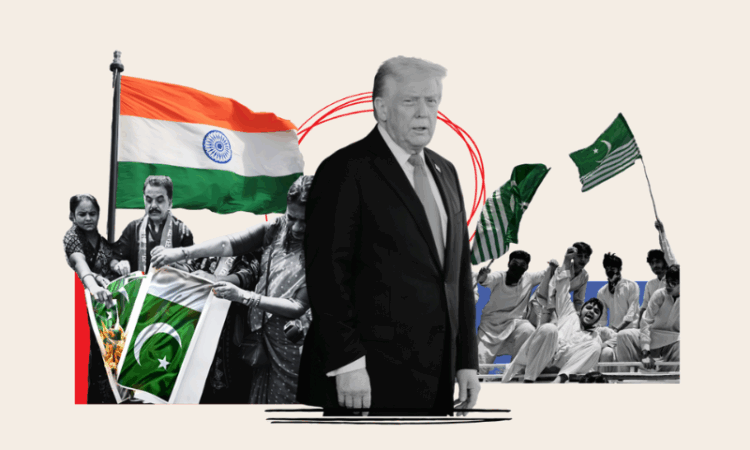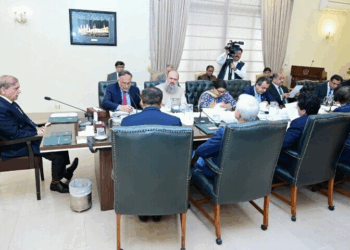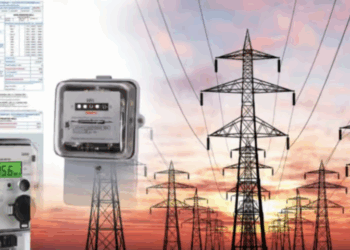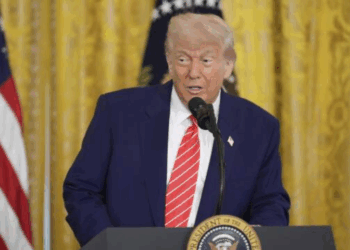Washington, May 7, 2025: US President Donald Trump has expressed dismay over India’s cross-border strikes into Pakistani territory, calling the escalation between the two nuclear-armed neighbours “a shame” and urging both countries to end hostilities quickly.
Speaking at the White House late Tuesday, President Trump commented on the unfolding crisis after India claimed to have targeted what it called “terrorist camps” in Pakistan following a deadly incident in Indian Illegally Occupied Jammu and Kashmir (IIOJK).
“It’s a shame, we just heard about it,” Trump said, appearing visibly concerned. “They’ve been fighting for many, many decades—and centuries, if you really think about it. I just hope it ends very quickly.”
Trump’s remarks came amid heightened military tensions, with Pakistan launching a forceful counterattack in the early hours of Wednesday. According to Inter-Services Public Relations (ISPR), Pakistan shot down five Indian Air Force (IAF) jets—including three Rafales, one Su-30MKI, and one MiG-29—and obliterated a key Indian Army brigade headquarters in retaliation for India’s missile strikes on civilian areas in Punjab and Azad Kashmir.
Lt Gen Ahmed Sharif Chaudhry, the ISPR chief, confirmed that the retaliatory operation had been swift and effective, and emphasized that all Pakistani jets involved in the response returned safely.
“Pakistani armed forces are giving a befitting response to Indian aggression,” he declared, underscoring Pakistan’s commitment to defending its sovereignty and civilian population.
Security sources revealed that Pakistani missile strikes had also destroyed an enemy outpost in the Dhundial sector along the Line of Control (LoC), where an intense exchange of fire remains ongoing.
As tensions escalated, the US State Department issued a cautious but firm appeal for de-escalation. Spokesperson Tammy Bruce said the United States is “closely monitoring” the rapidly developing situation.
“We continue to urge Pakistan and India to work towards a responsible resolution that maintains long-term peace and regional stability in South Asia,” she told reporters.
Her comments followed India’s controversial threats, including Prime Minister Narendra Modi’s recent remarks about blocking water flow to Pakistan—a move experts warn could further destabilize an already fragile peace in the region.
India’s strikes, carried out with standoff weapons while remaining within its own airspace, targeted civilian zones in Muridke, Bahawalpur, Kotli, and Muzaffarabad—resulting in the deaths of at least eight Pakistani civilians and injuries to 35 more, many of whom were women and children, according to the ISPR.
Pakistan has formally raised the issue at the United Nations, asserting its right to respond under Article 51 of the UN Charter and calling India’s attack “an unprovoked act of war.”
As the international community watches closely, Islamabad has reaffirmed that it does not seek conflict but will not hesitate to retaliate if its territorial integrity is violated.







